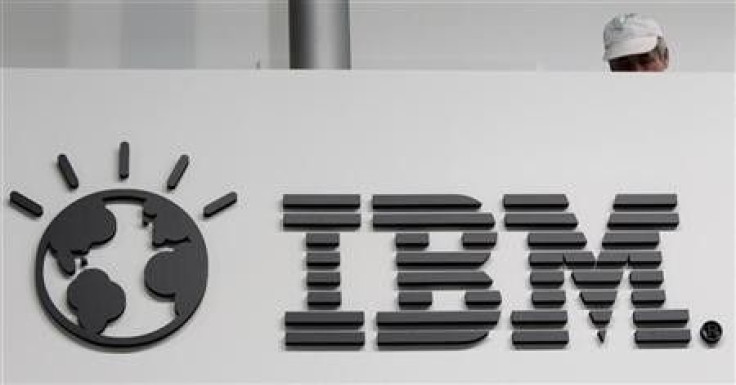IBM's Trifecta Of Deals Will Change The World Of Healthcare

A new deal involving IBM, Johnson&Johnson, Apple and Medtronic is set to change the world of healthcare. It would be by harnessing the power of a new computation model that will connect all old and new health care systems
A report on Forbes.com revealed that IBM will incorporate its Watson artificial intelligence to "create a new middle layer" in today's health care databases, "linking the old electronic records systems with components dating back to the 1970s, with a new, cloud-based architecture." Compared with other computing systems, Watson collates data from a comprehensive number of sources, including research reports and social media. The artificial intelligence can interpret millions of documents in seconds, according to IBM's Eeb site.
"We are convinced that by the size and scale of what we’re doing we can transform this industry," said John Kelley, senior vice president of IBM Research, to Forbes. "I’m convinced that now is the time."
Three companies have signed on to integrate Watson into their products: Johnson & Johnson, and Medtronic, the world's third largest medical device maker, and tech giant Apple.
Johnson & Johnson will use Watson to develop a "personal concierge service" that will prepare patients for knee surgery and aid them as they recover. In October, J & J announced that it would be using Watson to evaluate new drugs before mass-producing them, Fortune Magazine reported. Medtronic will integrate Watson into medical gadgets to gather data from diabetes patients who have had implants, as well as monitor their progress.
Meanwhile, Apple will apply Watson to its HealthKit and ResearchKit open source frameworks to collect data for medical research and clinical trials. This initiative will benefit researchers in Australia and the United States, for example, as a number of pre-clinical studies are underway, including those conducted by brain cancer developers Novogen (ASX:NRT) and Nascent Biotech, Inc. (OTC:NBIO) in these countries.
IBM offers a version of Watson that's specific to the oncology market for better patient care. Called Watson for Oncology, the service analyses a huge volume of patient information and evaluates them against existing research, medical records and clinical trial results to allow physicians to make informed decisions in providing evidence-based treatment to patients. The software was developed by IBM in partnership with Memorial Sloan Kettering (MSK) Cancer Center.
"It will be like having a capable and knowledgeable 'colleague' who can review the current information that relates to my patient … It is fast, thorough, and has the uncanny ability to understand how the available evidence applies to the unique individual I am treating," Dr James Miser, chief medical information officer of Thailand-based hospital Bumrungrad, said of Watson for Oncology.
In August, IBM published a peer-reviewed study in partnership with Baylor College of Medicine that revealed six promising targets for new cancer research, according to a report on InformationWeek. IBM's Watson Discovery Advisor technology was used for the study to analyse over 70,000 scientific articles on p53, a type of protein associated with various cancer types.
"In the life sciences industry at large, researchers typically come across one of these target proteins per year," said IBM Watson Vice President John Gordon in the report. "Baylor working with Watson found six targets, and the first two that they've taken into wet labs have been validated, so they're outpacing the industry."
To contact the writer, email: v.hernandez@ibtimes.com.au






